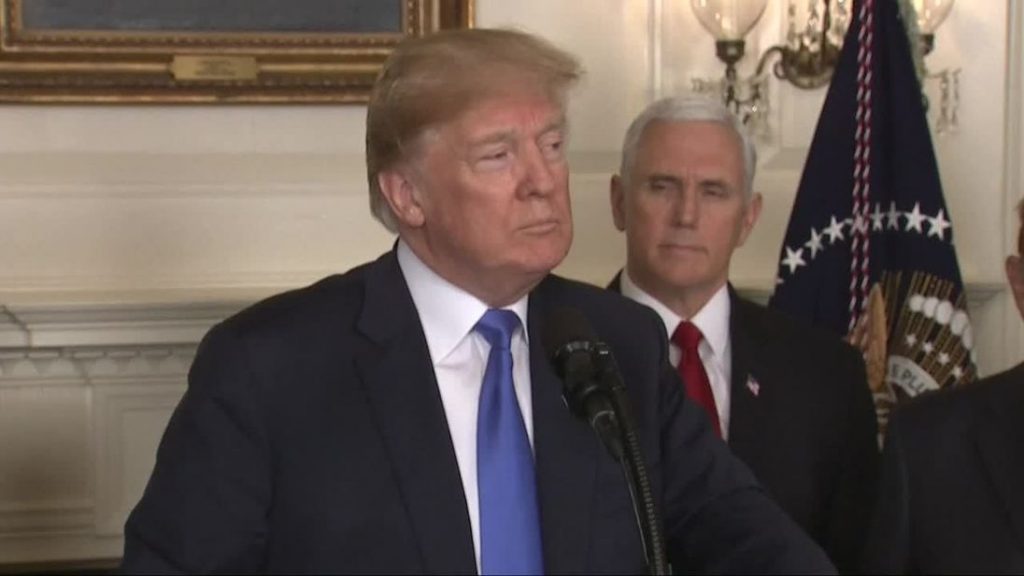Asian markets have fallen sharply overnight amid increasing fears of a damaging trade war between China and the US, the world’s largest two economies.
Japan’s Nikkei closed 4.5% lower while Hong Kong’s Hang Seng was down by 2.4%, South Korea’s Kospi lost 3.2%, and China’s Shanghai Composite dropped 3.4% in value – following steep declines on Wall Street earlier.
In London, the FTSE 100 fell 0.9% in early trading, having already lost 1.2% on Thursday to finish below the 7,000-mark for the first time since December 2016 – and move it officially into “correction” territory, more than 10% below its most recent peak.
Investors were spooked by Donald Trump’s confirmation of tariffs of up to $60bn on imports from China.
Beijing announced its own plans that could hit up to $3bn of US goods including fresh fruit, wine and nuts with levies.
It urged the US President to “pull back from the brink”, adding: “China doesn’t hope to be in a trade war, but is not afraid of engaging in one.”
Investors fear dire consequences for the global economy if trade barriers start going up. Smaller economies that supply the US and China would be likely to bear much of the pain.
Mr Trump launched his protectionist agenda earlier this month – levying 25% tariffs on steel and 10% on aluminium – in a move designed to save US jobs but which critics fear could backfire and the Bank of England on Thursday warned risked damaging global growth.
Europe and the UK are among key trading partners to America that are exempted for now as negotiations continue – with the exemptions due to be reviewed at the beginning of May.
But China was not spared, with the US President pointing to his country’s $504bn deficit with the country and confirming that there would be additional sanctions across a wide range of goods and services from software to fake Ralph Lauren polo shirts.
However, a presidential memorandum signed by Mr Trump said there would be a 30-day consultation period, effectively creating room for talks over his claims against China about intellectual property theft and technology transfers.
In the UK, there was a warning that despite being spared from the tariffs, the British steel industry could still suffer.
That is because millions of tonnes of cheap Chinese steel would still be on the market even if trade tariffs did make it unviable in the US.
From – SkyNews




